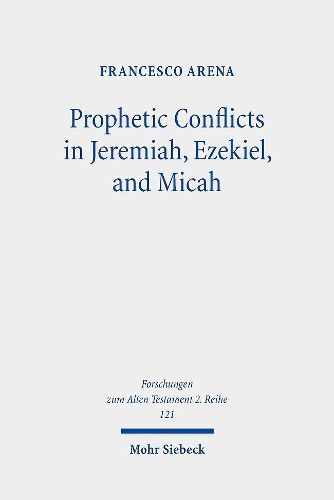Readings Newsletter
Become a Readings Member to make your shopping experience even easier.
Sign in or sign up for free!
You’re not far away from qualifying for FREE standard shipping within Australia
You’ve qualified for FREE standard shipping within Australia
The cart is loading…






In this volume, Francesco Arena investigates false prophecy and prophetic conflicts, taking Jeremiah, Ezekiel, and Micah as the three books in the Bible most concerned with prophesying falsehood and false prophets. By building on the studies of G. Auld, R. Carroll, and G. Garbini, who first posited that the Writing Prophets were not prophets at all, but rather intellectuals or poets, the author puts the vexed question of false prophecy into a new perspective. If we accept that Jeremiah, Ezekiel, and Micah were not originally true prophets (or prophets at all) what should we do with their quarrels with the alleged false prophets? Can we still consider prophetic conflicts as expressions of a socio-religious phenomenon? Or should we instead consider them as some later creations to serve ideological purposes?
$9.00 standard shipping within Australia
FREE standard shipping within Australia for orders over $100.00
Express & International shipping calculated at checkout
In this volume, Francesco Arena investigates false prophecy and prophetic conflicts, taking Jeremiah, Ezekiel, and Micah as the three books in the Bible most concerned with prophesying falsehood and false prophets. By building on the studies of G. Auld, R. Carroll, and G. Garbini, who first posited that the Writing Prophets were not prophets at all, but rather intellectuals or poets, the author puts the vexed question of false prophecy into a new perspective. If we accept that Jeremiah, Ezekiel, and Micah were not originally true prophets (or prophets at all) what should we do with their quarrels with the alleged false prophets? Can we still consider prophetic conflicts as expressions of a socio-religious phenomenon? Or should we instead consider them as some later creations to serve ideological purposes?